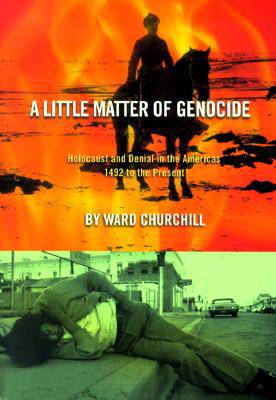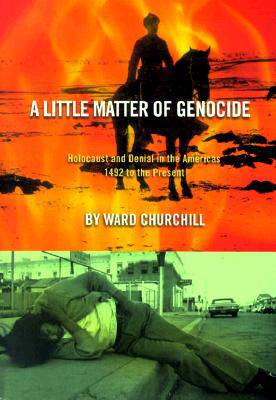
- Retrait gratuit dans votre magasin Club
- 7.000.000 titres dans notre catalogue
- Payer en toute sécurité
- Toujours un magasin près de chez vous
- Retrait gratuit dans votre magasin Club
- 7.000.000 titres dans notre catalogue
- Payer en toute sécurité
- Toujours un magasin près de chez vous
A Little Matter of Genocide
Holocaust and Denial in the Americas 1492 to the Present
Ward ChurchillDescription
Ward Churchill has achieved an unparalleled reputation as a scholar-activist and analyst of indigenous issues in North America. Here, he explores the history of holocaust and denial in this hemisphere, beginning with the arrival of Columbus and continuing on into the present.
He frames the matter by examining both "revisionist" denial of the Nazi-perpatrated Holocaust and the opposing claim of its exclusive "uniqueness," using the full scope of what happened in Europe as a backdrop against which to demonstrate that genocide is precisely what has been--and still is--carried out against the American Indians.
Churchill lays bare the means by which many of these realities have remained hidden, how public understanding of this most monstrous of crimes has been subverted not only by its perpetrators and their beneficiaries but by the institutions and individuals who perceive advantages in the confusion. In particular, he outlines the reasons underlying the United States's 40-year refusal to ratify the Genocide Convention, as well as the implications of the attempt to exempt itself from compliance when it finally offered its "endorsement."
In conclusion, Churchill proposes a more adequate and coherent definition of the crime as a basis for identifying, punishing and preventing genocidal practices, wherever and whenever they occur.
Spécifications
Parties prenantes
- Auteur(s) :
- Editeur:
Contenu
- Nombre de pages :
- 531
- Langue:
- Anglais
Caractéristiques
- EAN:
- 9780872863231
- Date de parution :
- 01-01-97
- Format:
- Livre broché
- Format numérique:
- Trade paperback (VS)
- Dimensions :
- 153 mm x 216 mm
- Poids :
- 698 g







